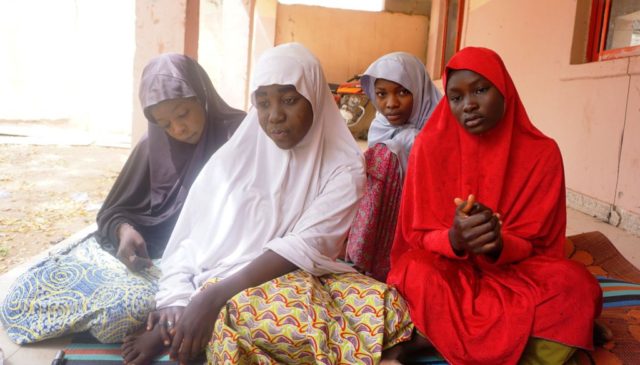More than 100 schoolgirls abducted by the Nigerian Islamic terror group Boko Haram in April 2014 remain missing, Amnesty International said Wednesday in a statement commemorating the seventh anniversary of the kidnapping in northeastern Nigeria’s Chibok village.
“Today marks seven years since 279 schoolgirls were abducted by the armed group Boko Haram in Chibok,” the human rights organization wrote on April 14. “Although most escaped or were later released, more than 100 girls remain in captivity.”
The exact number of schoolgirls still missing remains unclear. Nigeria’s Sahara Reporters news site on Tuesday wrote that 112 Chibok girls remain unaccounted for, while Christian Today reported Wednesday that the whereabouts of 111 girls remain unknown.
Boko Haram members stormed Chibok’s Government Girls Secondary School on April 14, 2014, forcibly seizing 276 mostly Christian girls aged 12-17. The terrorists loaded the schoolgirls onto trucks outside the school and drove them to the nearby Sambisa Forest, Boko Haram’s historic hideout. Some of the girls escaped during the drive to the forest, while others managed to slip away from their kidnappers after enduring weeks, months, and even years of captivity.
Boko Haram is a jihadist terror group based in northeastern Nigeria’s Borno State, home to Chibok village and the Sambisa Forest. The group has waged an Islamist insurgency across northern Nigeria and the neighboring countries of Chad, Cameroon, and Niger since the early 2000s with the goal of establishing an Islamic caliphate in the region. Boko Haram translates loosely to “Western education is forbidden” and the group has particularly targeted schools as part of an effort to eradicate Western culture from Nigeria. Boko Haram vowed to kill any escaped Chibok girls if they dared to return to school. A select number of the escaped Chibok girls did just that, bravely pursuing a Western education through a program sponsored by the Nigerian government at the American University of Nigeria (AUN) in the eastern city of Yola.
Open Doors, a mission supporting persecuted Christians, reported on April 14 that “39 of the girls so far released remain in school at the American University of Nigeria, 17 are studying in the US, two have graduated, and one has become a pilot there.”
“We thank God [for this news] after all that they have been through. However, some of the girls are still dealing with serious trauma, and have been unable to face returning to school,” Yakubu Nkeki Maina, chairman of the Chibok Parents’ Association, told Open Doors.
Sahara Reporters published an open letter by the Chibok Parents’ Association on April 13 in which the group urged the Nigerian federal government to “report on the whereabouts of Halima Ali, a captive Chibok girl who was recently able to speak to her father and other family members on the phone and who was allegedly in the hands of the Nigerian authorities but has not been heard from again.”
The parents’ group referred to Halima Ali Maiyanga, now 23 years old. Halima phoned her father on January 28 and “told him she had been rescued by the Nigerian army, but [her father] Maiyanga said he did not know her exact whereabouts or if she was alone or with more of her kidnapped former classmates,” the Thomson Reuters Foundation reported on February 1.
A Nigerian army spokesman denied that Halima had been “rescued” from Boko Haram by Nigerian soldiers in a February 1 press statement.
“We do not have any of the Chibok girls in our custody, so if they are not with us we have nothing to confirm again,” Nigerian Chief of Defense Staff Lucky Irabor told reporters on January 31 according to Nigeria’s Vanguard newspaper.

COMMENTS
Please let us know if you're having issues with commenting.